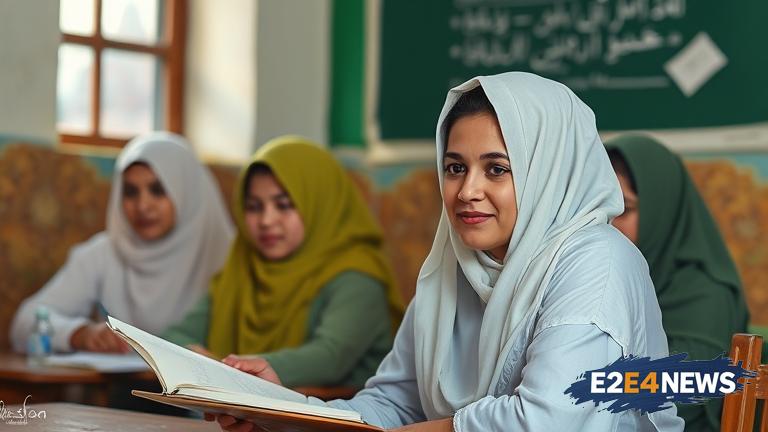The Taliban’s takeover of Afghanistan in 2021 led to a significant decline in women’s education, with many schools being forced to close. However, some religious schools, known as madrasas, have continued to operate in secret, providing a safe space for girls and women to learn. These schools, often run by brave and determined individuals, are defying the Taliban’s rules and risking their own lives to educate the next generation of Afghan women. The madrasas offer a range of subjects, including mathematics, science, and literature, as well as Islamic studies. The students, who range in age from 5 to 25, are eager to learn and are making significant progress despite the challenges they face. The schools are often hidden from view, with secret locations and coded messages used to communicate with students and teachers. The teachers, many of whom are women themselves, are dedicated to their work and are passionate about empowering their students. Despite the risks, the madrasas are thriving, with many reporting an increase in enrollment and a growing demand for education. The students are not only learning academic subjects but also gaining valuable skills and confidence. The madrasas are also providing a sense of community and support for the students, many of whom have been isolated and marginalized by the Taliban’s rules. The international community has taken notice of the madrasas and is providing support and funding to help them continue their work. The United Nations has launched initiatives to promote girls’ education in Afghanistan, and organizations such as UNESCO and the Malala Fund are working to support the madrasas. The Afghan government, although limited in its power, is also working to promote education and has launched programs to support girls’ schools. The madrasas are a testament to the resilience and determination of Afghan women and girls, who are refusing to give up on their right to education. The schools are a beacon of hope for the country’s future, and their work is crucial to building a more equitable and just society. As the international community continues to support the madrasas, there is a growing sense of optimism that Afghanistan’s girls and women will one day have access to the education they deserve. The madrasas are a reminder that even in the darkest of times, there is always hope for a better future. The students and teachers of the madrasas are true heroes, risking their lives to educate and empower the next generation of Afghan women. Their bravery and dedication are an inspiration to us all, and their work will have a lasting impact on the country’s future.
